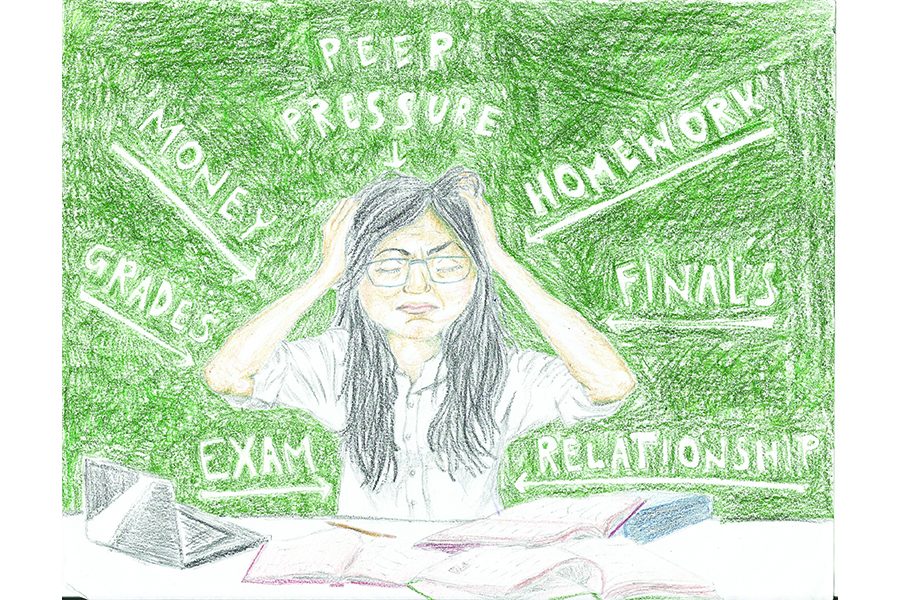Universities must cultivate culture of openness, acceptance to combat student anxiety
With more than 40 percent of college students citing anxiety as a major concern, mental health on college campuses is a pressing matter. As schools work to ensure students have the necessary resources to cope, they must also encourage an open, welcoming environment in which students can voice their vulnerabilities.
In a 2016 American College Health Association study, nearly 62 percent of students disclosed that they “felt overwhelming anxiety” in the last year. Such anxiety may come in many forms: social anxiety disorders, which provoke excessive worry in social situations; obsessive-compulsive disorders, in which mental angst expresses itself in obsessive behaviors; or panic disorders, which provoke sudden bouts of anxiety. The aforementioned, however, are far from the only manifestations of anxiety.
Marginalized minorities, for instance, may suffer from isolation in institutions of higher learning. Likewise, trauma survivors might be plagued by post-traumatic stress disorder. Far from a uniform condition, student anxiety takes various forms.
Nonetheless, anxiety in all forms can have debilitating effects on student wellbeing, with 21.9 percent of students in 2014 reporting that anxiety “affected their academic performance” and 1.4 percent attempting suicide. Many institutions on college campuses, such as Tulane’s The Well for Health Promotion and CAPS for Counseling Services, have committed themselves to supplying students with the necessary resources and support. These measures, however, are not enough.
The stigma surrounding mental illness may prevent some from seeking help. Furthermore, in the hyperactive college world, in which everyone is balancing multiple clubs, sports and classes, students may feel alone in their distress. Despite afflicting many, the façade of competence fostered by the restlessness of college life isolates students from the struggles of their peers.
Fortunately, college students are already taking steps to normalize the conversation around mental health. For instance, the National Alliance of Mental Illness at Tulane provides students with a space to discuss their mental health with others. Its annual festival similarly connects students, exposing an often hidden subject and removing its stigma. To be sure, these types of initiatives are no replacement for the therapy and treatment that anxiety and other mental disorders necessitate. Nevertheless, they do afford students a crucial means of expressing themselves openly.
Forty million, or one in five, adults in the U.S. suffer from an anxiety disorder, and for several, this malady is compounded by an inability to disclose their anxiety to others. It is therefore on each of us to help and support our fellow students. Such an issue cannot continue to remain in the shadows. We must assume this responsibility, not for one’s self, but for one’s own.
This is an opinion article and does not reflect the views of The Tulane Hullabaloo. Nketiah is a sophomore at Newcomb-Tulane College. He can be reached at [email protected].
Your donation will support the student journalists of Tulane University. Your contribution will allow us to purchase equipment and cover our annual website hosting costs.

















Leave a Comment